Odisha State Board CHSE Odisha Class 12 Approaches to English Book 2 Solutions Short Stories Chapter 2 The Tree Textbook Exercise Questions and Answers.
Class 12th Alternative English Short Stories Chapter 2 The Tree Question Answers CHSE Odisha
The Tree Class 12 Questions and Answers
Section – I
Questions For Discussion
Question 1.
How does the writer describe the river in the spate? Did it cause havoc in the village: What was the time of the flood?
Ans:
When the river was in full spate, it bulged up sounding like a thousand hooded hissing cobra. It did not play havoc in the village. The flood came a little past midnight.
Question 2.
What did the villagers do to meet the crisis?
Answer:
As people suddenly realized that the situation was much more grave than they had imagined they raised their lanterns. They ran to take shelter under the banian tree.

Question 3.
The leaves chattered incessantly in their familiar language of hope and courage. How does this statement portray the banian tree?
Answer:
The leaves of the banian tree made sounds as they usually do. Inspiteofthe approaching danger, they behaved in a similar way without paying any attention to the flood and its associated dangers. They were a symbol of courage and boldness which attribute the same qualities to the banian tree.
Question 4.
What were the story behind the mound and the tree?
Answer:
The mound contained the ruins of a certain king’s palace. The king dared to cut down a few branches of the tree to make room for his palace. Perhaps he planned to destroy the tree, but before he could do so a terrific storm had broken out. The palace collapsed and formed a mound. The tree, it was said had taken off down to the Himalayas or other such meaningful places at the command of a certain great soul who lived under it.
Question 5.
Write briefly about the “banian goddess”. What does this portrait reveal about the village? Do you make an element of humor and satire in the description?
Answer:
The “banian goddess” had to regular priest attached to her. Whoever so desired could approach her and sprinkle vermilion on her. In course of generations, the vermilion crust had come to account for the greater part of the goddess’s body. Devotees usually did not prostrate to her, they bowed when they passed by complex and formidable matters were referred to the deities of distant temples whereas small issues were put forth before her. Children in particular found her quite helpful in regard to crises arising out of undone home works or the ill-humored primary school pundits. It works with an element of humor and mild satire in the description.
Question 6.
How does the author describe the different trunks of the banian tree? Are the descriptions given in a serious or light-hearted vein? Do they reveal the orthodoxy and superstition of the villagers?
Answer:
At the foot of one of the trunks rested the tiny “banian goddess”. The revered and sacred bull of the village relaxed beside another trunk, eyes shut and jaws moving. An old woman from the neighboring village on her way back from the bi-weekly market set learning against another trunk. In a hollow at the foot of another trunk raised a family of snakes that had earned the reputation of being conscientious and harmless. The description reveals the orthodoxy and superstition of the villagers.

Question 7.
How was the tree godly? What did it symbolize?
Answer:
The tree was taken to be immortal by all without anybody having to be told about it. Immortality being an attribute of the gods, it was godly. Nobody would flaunt a decision that had been arrived at in a meeting under the tree. There was the seal of some power invisible and inaudible.
Vocabulary
Make nouns from the following:
terrible
collective sensible
advise
patient
remote
syllabic
strong courageous
protect
generate
respond expect
helpful dark
aware
full
cloudy
starry
descend
scandalize
expand crazy
Answer:
Words – Noun Forms
terrible – terror
collective – collection
aware – awareness
full – fullness
cloudy – cloud
starry – star
descend – descent
scandalize – scandal
expand – expansion
crazy – craze
respond – response
helpless – helplessness
dark – darkness
sensible – sensibility
advise – advice
patient -patience
remote – remoteness
syllabic – syllable
strong – strength
courageous – courage
protect – protection
generate – generation
expect – expectation
Section – II
Questions For Discussion
Question 1.
What is the central incident in the section?
Answer:
The banian tree being swept away by the flood and its fall and uprooting consist in the central incident in this section.

Question 2.
What attitude of the villagers is reflected in the words of the retired head pundit? How does he interpret the fleeing of the birds and snakes from the tree?
Answer:
The retired head-pundit said, “far from the good sign, snakes, and birds fleeing this great shelter”. It indicates the head pundits’ superstitious attitude. Fleeing of the birds and snakes from the tree had taken place owing to the human sins to the excess. They were going to face the consequences for their ill deeds.
Question 3.
How do the villagers react to the words of the college-going young men? What is distinctive about the attitude of the young men
Answer:
When the college-going young men said that the banian tree was felling which would take away a chunk of earth. But the villagers reacted against it telling that they were studying in college, and would they be able to save the tree with their English, Algebra, and all that abracadabra.
Question 4.
What does Srikant Das, the Vaishnav, observe about the impending fall of the tree? Does it reflect the orthodoxy and superciliousness of the villagers?
Answer:
Srikant Das, the Vaishnav observed that not only those boys but everybody in the village has his share of sin. And if the tree was going to collapse it was because it could not bear the burden of its sins. It reflects the orthodoxy and superciliousness of the villager.

Question 5.
Do you find a contrast between the two generations in this section? Explain
Answer:
Two generations such as the old and young are contrasted in this section. The old cling to the ancient orthodox values and the young college students provide a reaction of the student against old and hackneyed beliefs.
Grammar
Fill in the blanks with the right verbs, (for practice test)
l. You ________ to read this book. It is really very fine.
2. You _______ came to work on time.
3. __________ I came in Sir?
4. He is driving recklessly, he_________ face an accident.
5._________ I speak to Mr. Panigrahi.
6. You________ honour your superiors
7______ I see your camera
8. My dear son you ________ do what your teacher says
9. Come soon, there ________ be a crowd here.
10 I __________ read this book well.
11. You_______ take my umbrealla.
12. All the doors_______ be closed because storm appears.
13.______ you say so?
14. You should buya camera now, press_________ go up.
15. As he was strong he____________ swim for 3 hours.
16. I ________ never seen you again
17. You _______ be here by six.
18. It _________ rain, you’d better take an umbrella.
19. He ___________ be on the next bus
20. He__________ to go to river bank.
21. You___________ comb your hair so stylistically.
22. He said that it _________ rain
23. You_______ tell her about it. He knows it.
24. When I was a boy I_________ understand all.
25_________ you read this letter?
26. You _________ be here in time because your presence is highly essential
27. You_________ reach here in time.
28. Students________ not enter into the room with a book
30_______ I borrow your umbrella?
31. When I first went to London. I ______ easily understand them
32. I_______ prepare a lesson plan for you
33. I suggest that you _____ go for a picnic.
34. We ___________ play here.
35. It is natural that you__________ behave like this.
36. A leader ________ be a man of good character
37. He__________ reach here after a few minutes.
38. You ___________ stop drinking, otherwise, death is sure
39.________ came for this insult?
40. I_________ lend you fifty thousand.
41. You _______ use my bicycle
42_________ we go for a picnic?
43. You_________ run so fast because you have much time to spare.
44. I _________ drive this car
45. I wish you _________ wait five minutes for me.
46. She_________ be waiting me there.
47. You __________ be punished.
48________ you help me lifting this stone?
49. You _________ be punished.
50. When he was a child, he _________ get set up early in the morning.
51. We__________ to help the helpless.
52. Work had lest you __________ fail.
53. You_________ read this play.
54.___________ I work for you?
55. He_________ eat all the sweets.
56._________ I discuss with him
57. __________ that I was handsome, I would win her heart
58.__________ I came in?
59. It is too late you ___________ be hurried.
60. An accident __________ happen
61. I _________ help you.
62. You stop _______ here because there is danger ahead.
63. _______ you pass that tea?
64. I_________work for him
65. ________ you show me the way to the Ashoka Hotel?
66._______ you shut that door?
67._________ I carry your bag?
68. I wish you ______ success in life
69. How __________ I distribute the sweets?
70. You __________ read regularly.
71._________ his soul get peace.
72.__________ you like to stay with us?
73. ________ 1 have a glass of water?
74.___________ you have a journey with me?
Section – III
Questions For Discussion
Question 1.
What is the primary concern of the villagers in this section? In which context did Manoj Das bring in the names of some important villagers? What tone do you mark in the description?
Answer:
The primary concern of the villagers in this section is to protect them as the representatives of peoples of that sort. Manoj Das brings in the names of important villagers to let the readers know how much individuals take the lead in superstitious attitudes. There is a tone of mind satire in the description.

Question 2.
What did the old Brahmin do when the tree was about to be swept away by the flood?
Answer:
The old Brahmin rushed to the remnants of the tree. He sat down on the muddy ground a spot which had been considered dangerously unsafe even by the snakes and mustering all his strength pulled up the small stone that has stuck to the spot. Holding the unrooted crowd that watched him breathlessly.
Question 3.
How did the villagers behave when the tree was about to be swept away by the flood?
Answer:
When the tree was gone, the villagers were excited to utter, “Haribol, Haribol”. They kept up the poignant chant with all their hearts all looking stupefied and some aping.

Question 4.
How does the story end? Is it a satisfactory ending?
Answer:
The story ends with the frantic attitude of the villagers towards the idea of superstition in connection with the appearance of the banian Goddess and the unreasoning belief of the people that the ending is not satisfactory ending. The story is brought to an end abruptly with the child’s words.
Questions For Composition
Question 1.
Give an account of the life and attitude of the villagers as portrayed in the story.
Answer:
The Story Tree” is written by Manoj Das an eminent, popular, and outstanding storyteller of Odisha. Actually, Manoj Das is a bilingual writer of international repute. Here, Das very interestingly depicts the life and attitude of the people of an Odishan village, their life governed by rituals, orthodoxy, and superstitions. In feet, this is Das’s most typical piece of writing which depicts the true and realistic picture of society. However, right from the time, the reason was on the verge of monsoons, the villager’s elders had begun to look grave.
The sinister cloud formation on the mountains several miles away and a widening of uncanny awareness around the moon had informed them that there were terrible days ahead. The villagers felt scandalized every time their familiar tame river expanded and looked alien and began hissing. It gave the sort of shock which are experienced when the domestic animal suddenly went craggy behaving widely and not responding to any amount of endearment. Moreover, the villagers had a strong belief. There was a mound that contains the rains of a certain king’s palace. It was neither possible nor necessary to recall the name of the king who had built it whether he had been of the solar or the lunar dynasty.
What was frequently recalled was that he had dared to cut down a few branches of the tree to make room for his palace. Perhaps he had planned to cut more, perhaps even to totally destroy the tree, but before he could do so a terrific storm had broken out. The palace collapsed. The king and his family took shelter under the tree and were saved. The king elapsed the tree and wept and the story was mitigated. Further back in time, it was said, the tree had taken off and flown to the Himalayas or other such meaningful places, at the behest of a certain great sound who lived under it. On the other hand, the villagers were also superstitious.
They had believed that at the foot of one of the trunks of the banian tree rested the tiny “banian goddess” who had a regular priest attained to her. Whoever so desired could approach her and sprinkle vermilion on her. In the course of generations, the vermilion crust had come to account for the greater part of the goddess’s body. Devotees did not ordinarily prostrate themselves to her, but everybody while passing before her bowed enough for her to take contingency of his or her devotion. In complex or formidable matters, the villagers prayed for the intervention of famous deities of distant temples.
But small issues were referred to her from time to time. Children, in particular, found her quite helpful in regard to crises arising from undone homework or the ill humor of the pundits of the primary school. Again, a Brahmin rushed to the felling tree and sat down on the muddy ground which had been considered dangerously unsafe even by the snakes, and getting all his might pulled up the stone that had struck the spot for God knows how many ages. Holding the uprooted goddess close to his bosom as though to protect her from invisible enemies, he returned to the crowd that watched him breathlessly.
Someone spread a towel on the grass. The Brahmin put down the Goddess and patted her. Bishnu Jena had seated himself before the banian Goddess, several people rushed to their homes and brought out cymbals and drums, and conch shells. These had to be played close to his ears as loudly as possible. He began by shivering. Bishnu Jena was thought to have been possessed. He said, “I will be born as a thousand trees here, there and everywhere” Such was the life and attitude of the villagers as portrayed in the story. As a matter of feet, Manoj Das’s portrayal of village life and attitude is superb and fantastic. It is realistic, elaborate, vivid, and outstanding. On the whole, the storyteller’s description is inspiring and thought-provoking.

Question 2
Discuss how the tree is an integral part of the life of the villagers.
Answer:
The short story Tree” is undoubted, the most typical masterpiece of Manoj Das, a prominent, famous, and outstanding angle – Indian writer of this present era. This story woven around an age-old banian tree of a village typically portrays the behavioral pattern and psychic responses of its inhabitants at a critical moment when the tree is uprooted and carried away by the river in spate. ‘ However, trees are a part of rustic life. This story also embodies the same things associated with a banian tree which was an age-old tree and had seen many generations.
The story, however, revolves around the age-old banian tree of a village. The story writer very interestingly depicts the life and attitudes of the people of an Odishan village, their life governed by rituals, present and future is intimately connected with the villagers and other life pattern. They cannot bear the nerve-racking incident of the tree being swept away by the flood. They even think of the rebirth of the tree in thousands the discussion among the different categories of villagers is really amusing and humorous. The elements of ivory and satire are discernible even on the occasion of a terrible loss to the village. However, there was a mound that contained the rains of a certain King’s palace.
It was neither possible nor necessary to recall the name of the King who had built it or whether he had been of the solar or the lunar dynasty. What was frequently recalled was that he had dared to cut down as few branches of the tree as to make room for his palace. Perhaps he had planned to cut nappe, perhaps even to totally destroy the tree, but before he could do so a terrific storm had broken out. The palace collapsed. The king and his family took shelter under the tree and were saved. The King clasped the tree and wept. The storm was averted. Moreover, many years back, it was said, the tree had taken off and flown to the Himalayas or other such meaningful places, at the behest of certain great souls who lived under it.
But that was an era of truth, and in the absence of some concrete evidence like the mound to support this legend, elders of the present generation spoke relatively less about it, and branches spreading over an acre resting on these trunks had become an institution long ago. Of course, at the foot of one of the trunks rested the tiny banian goddess. She had no regular priest attached to her. Whoever desired could approach her and sprinkle vermilion on her In the course of generations, the vermilion crust had come to account for the greater part of the goddess’s body. Children, in particular, found her quite helpful in regard to crises arising from undone homework or the ill humor of the pundits of the primary school.
The area before another neighboring the reversed sacred bull is used to relax eyes shut and jaws moving. An old woman coming from a village on the horizon sat leaning against another trunk with a sack half filled with greens and drumsticks. In the hollow at the foot, of another trunk resided a family of snakes which have earned the reputation of being conscientious and harmless above, rested a legion of birds. Again, the tree was taken to be immortal by all without anybody have been to be told about it. Immortality being an attribute of the gods, it was goodly.
Nobody would easily flout a decision that had been arrived at in a meeting under the tree, for even when the decision was unpalatable to the party, it knew that behind it, there was the seal of some power, invisible and inaudible thoughts. As a matter of feet, the banian tree plays a most integral and vital part in the story. It serves as the inevitable part of the life of the villagers. The tree provided a lot of emotional and philosophical sustenances that the villagers had derived throughout their life. The way Manoj Das has presented it in the story is superb and fantastic on the whole, the story is inspiring, elevating, thought-provoking, and heart-touching.

Question 3.
Describe the feelings and reactions of the villagers when the age-old tree is swept away by the flood.
Answer:
In fact, ‘The Tree” is Manoj Das’s best typical masterpiece. Like his other stories, here Das substantiates a vivid and elaborate realistic picture of village society where the banian tree cures the lives of the villagers to a great extent. However, the storytellers’ presentation of a banian tree with so much concern for the villagers is superb and fantastic. It serves as a vitally integral part of their day-to-day life. However, the short – story by Manoj Das portrays the feelings and reactions of the villagers when the age-old banian tree of a village, typically portrays the behavioral pattern and psychic responses of its inheritance at a critical moment when the tree is uprooted and carried away by the river in spate.
The story writer very interestingly depicts the life and attitudes of the people of an Odishan village, their life governed by rituals, orthodox, and superstitions. The old tree symbolizing the past, present, and future is intimately connected with the villagers and their life patterns. They cannot bear the nerve-racking incident of the tree being swept away by the flood. Theyeventhinkofthe rebirth of the tree in thousands. The discussion among the different categories of villagers is really amusing and humorous. The elements of irony and satire are discernible even on the occasion of a terrible loss to the village.
Moreover, as the sky in the east grew brighter it was observed that the ground between the tree and the river had already tilted towards the river. The young men tried to appear engrossed in discussing something highly sophisticated. “Not only these boys, but we all have our shares of sin,” he said. He asked one to confess his sin addressing the spirit of the tree, silently in hearts: But it sounded like a cry of lamentation. The crowd swelled rapidly. Almost all the villagers, women and children included were gathered there. Of course, the M.L.A. arrived there walking at a running space.
People asked him,’“Do you see the situation, M.L.A. Baboo? We are doomed !”The M.L.A. ordered to bring as much hope as they could but it was a force. The tree slowly went into the river. Everybody was pained and sorrowful struck to see the pathetic sight. Actually, the villagers had grown accustomed to the tree for years together. It has been for them sympathizers in their active life.
The sweeping away of the banian tree brought the village people a lot of emotional shocks. Hence, the villages had an instant love towards the banian tree and so its loss became extremely intolerable on their part. As a matter of fact, the way Manoj Das has presented the emotions and reactions of the villagers to the loss of the banian tree is most fascinating and elevating. In short, the description is, very much thought-provoking and heart-provoking.
Question 4.
Bring out the elements of humor and satire in the story.
Answer:
In feet, the short story, ‘The Tree” is true, the most typical masterpiece of Manoj Das, an eminent popular and outstanding Odishan storyteller of this current era. He has so far written a large volume of stories. His stories are realistic, ironic, humorous, and satirical in nature. This discussion story serves as a burning example expressing these qualities. However, the story “The Tree” by Manoj Das is a masterpiece that is replaced with humor and satire. There is a vein of satire and humor in the story throughout.
Actually, satire is a literary device designed for the other hand something which automatically arises laughter on the part of the reader. Both of them are used by the writer to depict the social follies and foibles and their rectification thereby. These are used to make a piece of writing interesting, enjoyable, and colorful. In this preview, this work is a satire on social and political issues. Mr. Das has pointed out the social evil by means of mild satire. Moreover, the trunk of the tree was the abode, of an Albanian goddess’. It has a satire on human attitude. Snakes and birds felt the spot was a sign of even women. This symbolized the approach of imminent danger. This harps on human superstition and people were shouting.
“Haribol” to save it from falling was another example of humor and satire. Sridhar Mishra, an eminent homeopath was able to save many from certain death. This was equally humorous. The approach of the M.L.A. is also a humorous and satirical expression of the political avenue. He ordered to fetch as much as possible but to no avail. Locating a stone on the spot and attributing it to godly qualities is another sample specimen of satire and humor. Satire and humor touch the zenith when people come with drums and cymbals to install the goddess amidst “Haribol”: Old Bishnu Jena had sealed himself before the banian goddess. He shook before the goddess and he was thought to have been possessed.
It is a mere expression of satire and humor. In this way, the entire; story is reminiscent of humor and satire. As a matter of fact, the humor and satire used by Mr. Das are superb and marvelous. The story writer has tried his level best to show the social follies and foibles through the use of mixed humor and satire throughout. On the whole, the story is most inspiring, enjoyable, elevating, and heart-touching.

Vocabulary
Derive nouns from the followings:
furious, diurnal
allocate, womanly
mental, distant
see, serve
live, handful
narrate, remain
systematic, sacred
young, conscientious
bright, excite
rotate, authoritative
diagnose, appear
fantastic, abandon
materialistic,declare
dutiful, extinguish
circular, grave
synonymous, extensive
antonymous, explain
popular, friendly
relax,
Answer:
Words – Noun Forms
furious – file
allocate – allocation
mental – mind
see – sight
live – life
narrate – narration
systematic – system
young – youth
bright – brightness
rotate – rotation
diagnose – diagnosis
fantastic – fantasy
materialistic – materialism
dutiful – duty
circular – circle
synonymous – synonym
antonymous – antonym
popular – popularity
relax – relaxation
diurnal – day
womanly -woman
distant – distance
serve – service
handful – hand
remains – remainder
sacred – sacredness
conscientious – conscience
excite – excitement
authoritative – authority
appear – appearance
abandon – abandonment
declare – declaration
extinguish – extinction
grave – gravity
extensive – extension
explain – explanation
friendly – friend
B. Indicate against each word (given below) the parts of speech they belong to:
stop, imply
wind, pity
touch, generation
now, tauntingly
suddenly, meek
splashed, mild
school, brightly
crept, collapse
hollow, sin
wriggled, silently
thousand, crowd
long, horizon
carry, helpless
huge, rapidly
develop, gathered
commented, throne
pleased, irony
Answer:
Words – Parts ofSpeech
stop – noun
wind – noun
touch – noun, verb
now – adverb
suddenly – adverb
splashed – verb
school – noun
crept – verb
hollow – noun
wriggled – verb
thousand – adjective
tong – adjective
carry – verb
huge – adjective
develop – verb
commented – verb
pleased – verb
imply – verb
pity – noun
generation – noun
tauntingly – adverb
meek – adjective
mild – adjective
brightly – adverb
collapse – verb
sin – noun
silently – adverb
crowd – noun
horizon – noun
helpless – adjective
rapidly – adverb
gathered – verb
throne – adverb
irony- noun
Section – I
Pre-Readingactivity:
Have you seen a banana tree or a pipal tree with its huge trunk and leafy branches spreading all around? Such a tree in a village is considered holy and sacred. The old and ageless tree standing at the end of the village since time immemorial has been a mute spectator of changes in culture and civilization. It has always been a part of a violent storm or a devastating flood? Here is a story about an old banian tree up-rooted by a heavy flood in a village in Odisha. As you read the first part of the story by Manoj Das, recollect the ways in which the banian tree is significant in the life of the villagers.

The Writer:
Manoj Das (Born – 1934), a devoted disciple ofSreeAurobindo, is a bilingual writer of international repute, writing in both English and Odia. Born in a small village in Odisha, he has a rich understanding of the life of his people, their rites and rituals, their orthodoxy and superstitions, “Cyclones” (a novel), “The submerged valley, and other stories, “A Bride inside a Casket and other Tales”, “Man who Lifted the Mountain and other Fantasies” are some of his important contributions to Indian English literature.
His Katha O Kahani won him the most prestigious SahityaAkademiAward. The world of his sort of story is not merely a world of shark reality but blended into a world of dreams and fantasy, which he creates at the psychic level. The elements of irony, humor, and satire add to the beauty and charm of his writings. The novelty and innovation both in theme and form exhibited in his fictional world have brought him immense fame. He now teaches English at the Sree Aurobindo International Centre of Education in Pondichery. He has been recently honored with the UtkalRatnaSamman for his outstanding contribution to literature.

The Story:
This story“The Tree” woven around the age-old banian tree of a village typically portrays the behavioral pattern and psychic responses of its inhabitants at a critical moment, when the tree is uprooted and carried away by the river in spate. Das very interestingly depicts the life and attitude of the people of Odishan village, their life governed by rituals, orthodoxy, and superstitions. The old tree symbolizing the past, present, and fixture is intimately connected with the villagers and their life patterns. They cannot bear the nerve-racking incident of the tree being swept away by the flood. They even think of the rebirth of the tree in thousands. The discussion among the different categories of villagers is really amusing and humorous. The elements of irony and satire are discerning, even on the occasion of a terrible loss to the village.
GIST:
Paragraphs1-4
The village elders have begun to look at graves right from the time the season was on the brink of monsoons. The formation of clouds on the mountains end wick ring of natural aura around the moon had informed them that there were terrible days ahead. The flood approached at late midnight. People called out to each other and were reassured of collective awareness and gathered on the river bank with lanterns or torches of dirty twigs. The flames began dancing in the air. The moon was clouded and the stars looked pale. The river came up hissing like a thousand hooded cobra. Floodwater never entered this village although hardly a season passed without the river playing havoc with the villagers a couple of miles downstream.

Paragraphs5-11
The villages felt scandalized every time their familiar tame river expanded and looked alien and began hissing. They suddenly realized that the situation was much more grave than they had imagined. They raised their lanterns. Boats generally came from the forest at the foot of the mountains where they went to collect timber.
The wind grew stronger and cooler and was soon accompanied by a thin shower. All ran to take shelter under the banian tree. The wicks of the lanterns were turned low. The elders would point to a mound covered with grass and shrubs, not far from the tree white living the ancient most proof of this fact. The mound had decayed through centuries but it was still “as high as two men”.
Paragraph 12
The mound contained the ruins of a certain king’s palace. It was neither possible nor necessary to recall the name of the king who had built it or whether he had been of the solar or lunar dynasty. What was frequently recalled was that he had dared to cut down a few branches of the tree to make room for his place. Perhaps he had planned to cut more even to totally destroy the tree. But before they could do so a terrific storm had broken old. The palace collapsed. The king and his family took shelter under the tree and were saved. The king clasped the tree and wept. The storm subsided.
GIST:
Paragraphs 13-15
It was again said that the tree had taken off and flown to the Himalayas or other such meaningful places at the order of a great soul who lived under it. The trunk that had once been clasped by the king had decayed and disappeared since time immemorial other sending down numerous shoots which have formed new trunks. The tree was resting on those trunks. At the foot of one of the trunks rested the tiny “banian goddess”. No regular priest had gotten attached to her. Whoever so desired could approach her and sprinkles vermilion on her. Devotees ordinarily did not prostrate themselves to her but everybody passing by usually bowed, complex and formidable problems were put before the deities or distend temples but small issues were referred to her from time to time. Children in particular found her quite helpful in regard to crises arising from undone homework or the ill humor of the pundits of the primary school
Paragraphs16- 19
The area before another trunk was the usual site for the village meetings. Relaxing beside a neighboring trunk, eyes shut and Jews moving in a leisurely rhythm, could be found the much revered sacred bull of the village. In the afternoons of the bi-weekly marked days, on old, women from a village on the horizon set leaving against another trunk with a sack half-filled with greens or drumsticks.

At sunsets, they would rise and offer a handful of whatever still remained in her sack to the scared bull. In a hollow at the front of another trunk resided a family of naked which had earned the reputation of being conscientious and harmless and in the branches above rested a legion of birds. The tree was taken to be immortal. Immortality is an attribute of gods. It was gods. Nobody would easily flout a decision that had been arrived at in a meeting under the tree even when the decision was unpleasant to a party.
Analytical Outlines
- The village elders had begun to look grave.
- The season was on the brink of monsoon.
- There was the formation of clouds in the mountains.
- There was a wide ring of natural aura around the moon.
- All those had informed them that there was a terrible day’s moon.
- The flood approached late midnight.
- People called out to each other.
- They reassured of collective awareness.
- They gathered on the river bank.
- They gathered with lanterns or arches of dry twigs.
- The flames began dancing in the air.
- The moon was clouded.
- It looked pale.
- The river came up hissing like a thousand hooded cobra.
- Flood waters never entered this village.
- The season passed without the river playing havoc.
- The villagers felt scandalized every time.
- Their familiar tame river expanded.
- It looked alien.
- It began hissing.
- They had imagined the situation.
- It was rather much more grave.
- They raised their lanterns.
- Boats generally came from the forest.
- They had gone to collect timber from it.
- The wind grew strongest and cooler.
- Then it was accompanied by a thin shower.
- All ran to take shelter under the banian tree.
- The wicks of the lanterns were turned low.
- The elders would point at a mound.
- It was covered with grass and shrubs.
- It was not far from the tree.
- The mound had decayed through centuries.
- But it was still “as high as two men”.
- The mound contained the ruins of a certain king’s palace.
- It was not possible to recall certain kings’ names.
- That king had built it.
- He might belong to the solar or lunar dynasty.
- It is not remembered by him.
- The king had dared to cut down a few branches.
- He made room for his palace by that.
- Perhaps he had planned to cut more.
- Even he had planned to totally destroy the tree.
- But a terrific storm had broken out.
- The palace collapsed.
- The king and his family took shelter under it.
- They were saved.
- The king elapsed the tree and wept.
- The storm subsided.
- It was again said that the tree had taken off.
- It had flown to the Himalayas. Or it had flown to other meaningful places.
- It is said that a great would have lived under it.
- The trunk clasped by the king had decayed.
- It had even disappeared.
- Numerous shoots had been produced.
- They had formed new trunks.
- The tree was resting on these trunks.
- At the foot of one of the trunks rested the tiny “banian goddess
- No regular priest had gotten attached to her.
- Whoever so desired could approach her.
- He could sprinkle vermillion on her.
- Devotees ordinarily did not prostrate themselves to her.
- But everybody passing by usually bowed.
- They put complex problems before her.
- They also put formidable problems.
- But small issues were referred to her from time to time.
- Children in particular found her quite helpful.
- They approached her for their crises arising from under homework.
- She is helpful for the ill humor of the pundits of the primary school.
- The area before another trunk was the usual site for village meetings.
- The neighboring trunk could be found much reversed sacred bull of the village.
- In the afternoon of the bi-weekly market days, an old woman sat leaning against another trunk.
- She was with a sack half-filled with greens or drunk sticks.
- She would rise in summer.
- She would offer a handful of things from the sack to the sacred bull
- A family of snakes resided in the hollow of another trunk.
- It had earned the reputation of being conscientious and harmless.
- A legion of birds rested above this branch.
- The tree was taken to be immortal.
- Immortally being an attitude of gods.
- It was godly.
- Nobody would easily flout a decision.
- It had been arrived at in a meeting under the tree.
- The decision was unpleasant to a party.

Meaning Of Difficult Words
sinister – that which makes you feel that something evil is going to happen.
uncanny – unearthly, supernatural
draped – covered
hiss – to make a sibilant sound, to condemn by hissing.
hood – expanded head of a snake.
havoc – a devastation.
scandalize – make a malicious gossip
expand – to spread out, to develop, to amplify
timber – carpenter’s wood, a beam
accompany – to keep company with
mound – bank of the earth or stone, heap, hillock
solar – influenced by the sun
lunar – influenced by the moon
terrific – fearful
collapse – to fall away, to break down
clasp – embrace
subside – to abate, to sink down
Section – II
Gist:
Paragraphs: 21 – 25
The rain stopped though no wind. A crashing sound stunned the people. Suddenly the earth seemed to rock. A few who were nearest the river were splashed. Had they been standing a few feet farther they would have been gone forever. Nirakar Das, the retired head-pundit of the primary school called everybody to leave the place and go away to a safer place. All obeyed his outright. A few snakes crept out of the hollow under the tree and wriggled away toward the mound. It appeared like the exodus of a thousand snakes. It was now about dawn. Nirakar Das advanced near the tree and looked up for a long time. He declared that his eyes were gone. He called one of his ex-pupils. Ravindra, the founder proprietor of the village’s sole, grocery and asked him to look up and see if there were any birds on the tree
Paragraphs: 26-38
Ravindra and others gazed up into the branches for a while and reported their finding that nothing of that sort was there. He asked the people of his age group and the reply was the same. He said it was not a good sign because snakes and birds have fled the natural shelter. Ravindra and others detected an extensive crack in the shape of a sickle with both ends pointing toward the river. The semi-circle embraced the tree. If the tree falls, it will carry the whole huge chunk along with it into the river for its unnumerable roots have made much of earth like a single cake.

As the sky in the east grew brighter it was observed that the ground between the tree and the river had already tilted towards the river. The young men tried to appear engrossed in discussing something highly sophisticated among themselves. Srikanta Das raised his voice and whispered that not only the boys but all adults have their share of it. And if the tree is going to collapse, it is because cannot one of us confess his sin, addressing the spirit of the tree silently in “our hearts”. Let us pray to be pardoned by saying “Haribol”.
GIST:
Paragraphs: 39 – 43
All shouted “Haribol” but it sounded like a cry of lamentation. When they stopped, the silence seemed bitingly sharp. With the gradual brightening of the sky, the seriousness of the situation became more and more apparent. A few kites that were circling above the whirling waters at times swooped down on the crowd as though to show the contempt of those who could dwell at such height and see all that was happening from horizon to horizon for the wretched men below regarding their situation with other helplessness.
The crowd swelled rapidly. Almost the villagers women and children included were then gathered there. In different words, all asked the same question. “What is to be done?” Apart from the tree was clearly learning about the river. Once the college boys had been humbled there was no hesitation to openly discuss the impending fall of the tree. Something no doubt had to be done. Only one knew what that was.
Analytical Outlines
- The rain stopped though not the wind.
- A crashing sound stunned the people.
- Suddenly the earth seemed to rock.
- A few near the river were splashed.
- Had they been standing a few feet farther?
- They would have been gone forever.
- Nirakar Das was the retired Head-pundit of the primary school.
- He called everybody to leave the place.
- He called them to go away to a safer place.
- All obeyed his outright.
- A few snakes crept out of the hollow under the tree.
- They wriggled away towards the mound.
- It appeared like the exodus of thousand snakes.
- It was about dawn then.
- Nirakar Das advanced near the tree.
- He looked up for a long time.
- He declared that his eyes were gone.
- He called one ofhis expupiL
- It was Ravindra.
- He was the founder and proprietor of the village’s sole grocery.
- He asked him to see if there were any birds on the tree.
- Ravindra and others gazed up into the branches.
- He reported their findings.
- Nothing of that sort was there.
- He asked the people of his age group.
- The reply was the snake.
- He said it was not a good sign.
- Because snakes and birds have fled the natural shelter.
- Ravindra and others detected an extensive crack.
- It was the shape of a sickle.
- It’s both ends pointed towards the river.
- The semi-circle embraced the tree.
- If the tree falls.
- It will carry the whole huge chunk into the river.
- Its innumerable roots have made much of the earth like a single cake.
- The sky in the east grew brighter.
- The ground of the tree is titled towards the river.
- The young men appeared there.
- They discussed among themselves the situation.
- Srikanta Das raised his voice.
- He whispered that both the boys and adults love their share of sin.
- The tree is going to collapse.
- It is because it can’t bear the burden of its sins.
- He said them to confess their sins.
- He addressed the spirit of the tree silently.
- He inspired them to pray to be pardoned.
- He inspired them to say “Haribol”.
- Now, shouted, “Haribol”.
- But it sounded like lamentation.
- They stopped then.
- The silence seemed bitingly sharp.
- The seriousness of the situation became more and more apparent.
- A few flying kites swooped down on the crowd.
- It showed the situation of the wretched men with utter helplessness.
- The crowd swelled rapidly.
- All the villagers, women, and children gathered there.
- All asked the same question in different words.
- It was, “What is to be done? Apart from the tree was clearly leaning towards the river.
- In college, boys had been humbled.
- There was no hesitation about the fall of the tree.
- Something, no doubt had to be done.
- Nobody knew what to do

Meaning Of Difficult Words
exodus – a going out on a mass scale.
sniffly – sniff to draw in air sharply and audibly through the nose.
whimper – to carry the nose.
swoop – to become down with a sweeping rush
edge – border, at the end of something
cashing sound – a great sound like that of a crash
stunned – bewildered, in a state of trance.
countless – uncountable, numerous, innumerable
crack – fissure, chasm
notorious – mischievous, wicked, naughty
tauntingly – sarcastically, caustically, satirically
implored – requested earnestly, entreated
titled – bent, bending towards the earth
apparent – clear, smooth, easy
contempt – hatred, decision, dislike
swelled – become thicker and thicker, grew in number
impending – imminent, very nearer
Section – III
Gist:
Paragraphs (44- 48)
Sridhar Mishra was a well-known homeopath. He had saved so many from certain death. When the people looked expectantly at him, his lips quivered as they always deed when he was about to diagnose a disease. The villagers were accustomed to reading in that quiver the promise of remedy. But as now the quivering did not stop even when the people had looked at him for a long time, they focussed their attention on Raghu Dalbehera, the only villager to possess a gun. When Raghu realized that the crowd had already been staring at him for five minutes, he raised his gun at an audaciously swooping kite, took aim, and continued to take aim. “Don’t Raghu, point”. Nirakar Das warned and Raghu brought down his gun in relief.

Gist:
Paragraphs (48-62)
Just then someone brought the news that the honorable member of the legislative assembly has been observed only by one on a nearby road perhaps heading for the next village. Freed from the obligation to think or do anything now that the M.L.A. had been located and summoned, all stood peacefully looking towards the bend of the road where he was expected to appear. People were sad that their sheer ill luck had spoiled them.
They had been doomed. The leader retorted that was why they had such pessimism. He also added that people downstream are greatly in trouble. These people are better off than the people downstream. The three college boys were elbowed their way forward, throwing glances back at the crowd as if defying it to stop them from confronting the leader.
They were of course two or three years below the voting age, but they were determined to regain face after their earlier humiliation. The M.L.A. paled, but ignored the boys and asked the elders “What would you like me to do ?” Someone said to him to stop the tree from falling. The M.L.A. said to fetch as many ropes as they could. He guided up his loins and got ready. But suddenly a part of the tree resting on several trunks slid into the river.

Gist:
Paragraphs (63-71)
The crowd stood thunderstruck. The silence was broken by an anxious voice “What will happen to the banian and goddess ?” No sooner had this been said than the ill-tempered old Brahmin was seen rushing to the remnants of the tree. He sat down on the muddy ground which was dangerously unsafe even by the snakes and mustering all his strength pulled up the small stone that has struck the spot. Holding the uprooted goddess close to his bosom as though to protect her from invisible enemies, he returned to the crowd that watched him breathlessly.
While thronging around the Brahmin the people said excitedly to give place to the goddess someone spread a towel on the grass. The Brahmin put down the goddess and patted her. Several people rushed to their homes and brought out symbols and conch shells had to be played close to his ears at loudly as possible. He began by shivering. Then he would fall down in a swoon and rise up with the face beaming supernaturally, eyes wild with inexplicable experiences.

Gist:
Paragraphs (72 – 74)
Bishnu was in France for at least two decades. Those who used to play the instruments close to his ears had purses, they were doing their best. Bishnu opened his mouth. The sound stopped. The voice from him ran: I will be born as a thousand trees here, there, and everywhere. The instruments played louder as the younger ones took over from the tired old hands. Along with Bishnu danced Nirakar Das, Srikanta Das, Vaishnav, and several others.
Analytical Outlines
- Sridhar Mishra was a well-known homeopathic.
- He had saved so many from certain death.
- People looked expectantly at him.
- He was about to diagnose a disease.
- His lips quivered at that time.
- The villagers were accustomed to reading in that quiver.
- That quiver was the promise of remedy.
- But now the quivering did not stop.
- They had looked at him for a long time.
- They focused their attention on Raghu Dalbehera.
- He was the only villager to possess a gun.
- Raghu realized that the crowd had already been staring at him.
- He raised his gun at an audaciously swooping kite.
- “Don’t Raghu, don’t Nirakar Das warned.
- Raghu brought down his gun in relief.
- Just then someone brought the news.
- It was that M.L.A. would be coming to visit a nearby road of villages.
- They all stood peacefully looking towards the bent of the road.
- The M.L.A. was expected to appear there.
- People said that their sheer ill luck had spoiled them.
- They had been doomed.
- They retorted that why they had such a pessimism
- He also added that people downstream are greatly in trouble.
- These people are better off than the people downstream
- The three college boys were elbowed their way forward.
- They threw glances back at the crowd.
- They defined it to stop them from confronting the leader.
- Of course, they were two or three years below the voting age.
- But they were determined to regain face.
- It was after their earlier humiliation.
- The M.L.A. paled but ignored the boys.
- He asked the elders, “What would you like me to do?
- Someone said him to stop the tree from falling.
- The M.L.A. said to fetch as much rope as they could.
- He girded up his loins.
- He got ready.
- But suddenly a part of the tree slid into the river.
- It rested on several trunks.
- The crowd stood thunderstruck.
- The silence was broken by an anxious voice.
- It was “What will happen to the banian goddess”?
- No sooner had this been said than the ill-tempered old Brahmin was soon rushing to the remnants of the tree.
- He sat down on the muddy ground.
- It was dangerously unsafe even by the snakes.
- He mustered all his strength.
- He pulled up the small stone.
- It has struck the spot.
- He held the uprooted goddess close to his bosom.
- He did this to protect her from invisible enemies.
- He returned to the crowd.
- They watched him breathlessly.
- They thronged around the Brahmin.
- The people said excitedly to give place to the Goddess.
- Someone spread a towel on the grass.
- The Brahmin put down the Goddess.
- He patted her.
- Old Bishnu Jena had seated himself before the banian Goddess.
- Several people rushed to their homes.
- They brought out cymbals
- They brought out drums.
- They also brought out conch shells.
- Drums, cymbals, and conch shells had to be played close to her ears as loudly as possible.
- He began by shivering.
- Then he would fall down in a swoon.
- He would rise up with a face bearing supernatural eyes.
- He bears wild eyes with inexplicable experience.
- Bishnu was France after at least two decades.
- The instrument players had grown old.
- They were doing their best with their sagging skin flapping like empty purses.
- Bishnu opened his mouth.
- Their voice from him ran “I will be born as a thousand trees here, there, and everywhere.
- The instruments played louder.
- The voice from him ran. “I will be born as a thousand trees here, there, and everywhere.
- The younger ones took over from the tired old hands.
- Nirakar Das, Srikanta Das etc, danced with Bishnu.

Meaning Of Difficult Words
clarion call – to blind around, to make first by a belt or girdle.
remnants – the battle cry of an ancient trumpet.
thronging – surviving and remaining person after destruction.
poignant – crowding or pressing.
gird – deeply moving.
sagging – bent down with age, wrinkled
pals – mates, chums.
Read More:
![]()
![]()
![]()
![]()

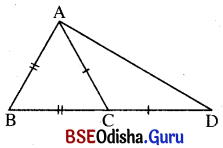
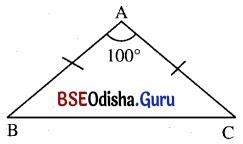
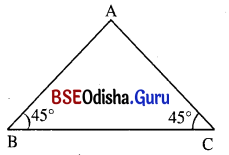
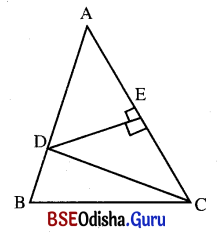 (ପ୍ରମାଣିତ)
(ପ୍ରମାଣିତ)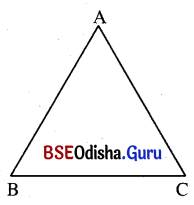 (ପ୍ରମାଣିତ)
(ପ୍ରମାଣିତ)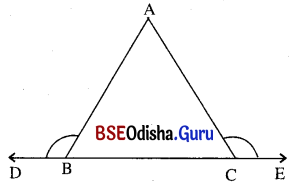 (ପ୍ରମାଣିତ)
(ପ୍ରମାଣିତ)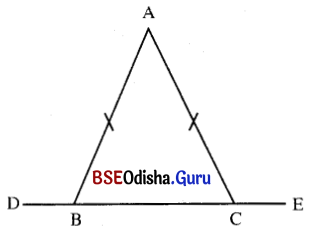 (ପ୍ରମାଣିତ)
(ପ୍ରମାଣିତ)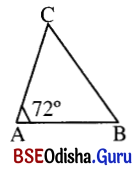 (ପ୍ରମାଣିତ)
(ପ୍ରମାଣିତ)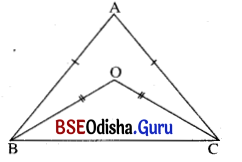
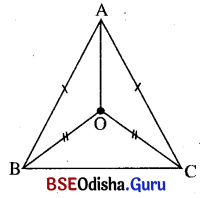
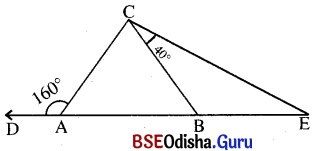 (ପ୍ରମାଣିତ)
(ପ୍ରମାଣିତ)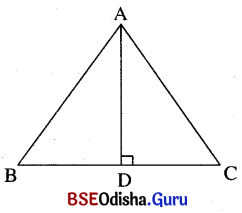 (ପ୍ରମାଣିତ)
(ପ୍ରମାଣିତ)
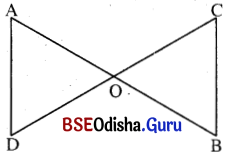
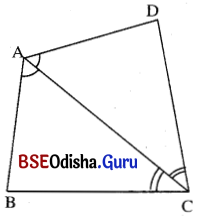 (ପ୍ରମାଣିତ)
(ପ୍ରମାଣିତ)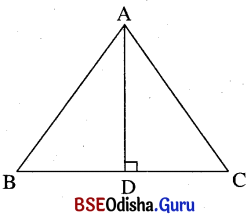 (ପ୍ରମାଣିତ)
(ପ୍ରମାଣିତ)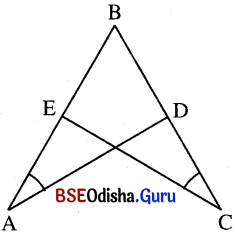 (ପ୍ରମାଣିତ)
(ପ୍ରମାଣିତ)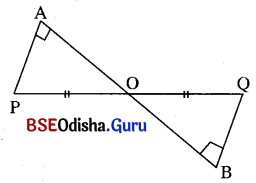 (ପ୍ରମାଣିତ)
(ପ୍ରମାଣିତ)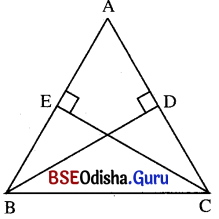 (ପ୍ରମାଣିତ)
(ପ୍ରମାଣିତ)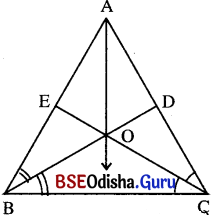 (ପ୍ରମାଣିତ)
(ପ୍ରମାଣିତ)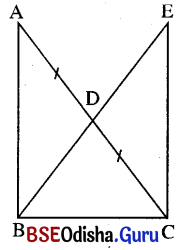
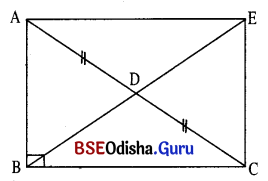 (ପ୍ରମାଣିତ)
(ପ୍ରମାଣିତ)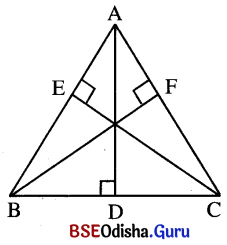 (ପ୍ରମାଣିତ)
(ପ୍ରମାଣିତ)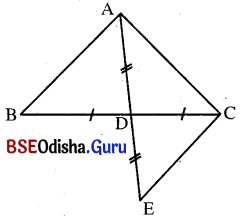 (ପ୍ରମାଣିତ)
(ପ୍ରମାଣିତ)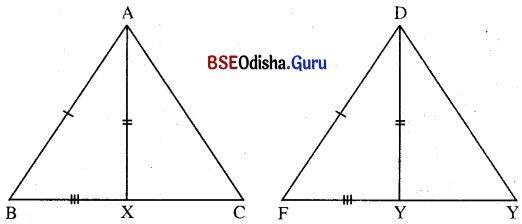
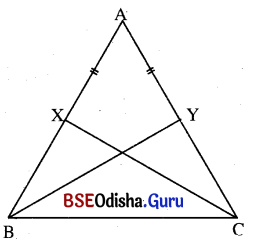 (ପ୍ରମାଣିତ)
(ପ୍ରମାଣିତ)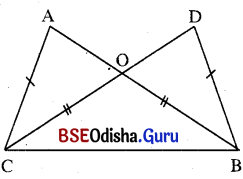 (ପ୍ରମାଣିତ)
(ପ୍ରମାଣିତ)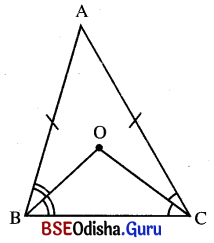 (ପ୍ରମାଣିତ)
(ପ୍ରମାଣିତ)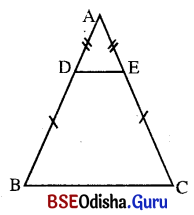 (ପ୍ରମାଣିତ)
(ପ୍ରମାଣିତ)